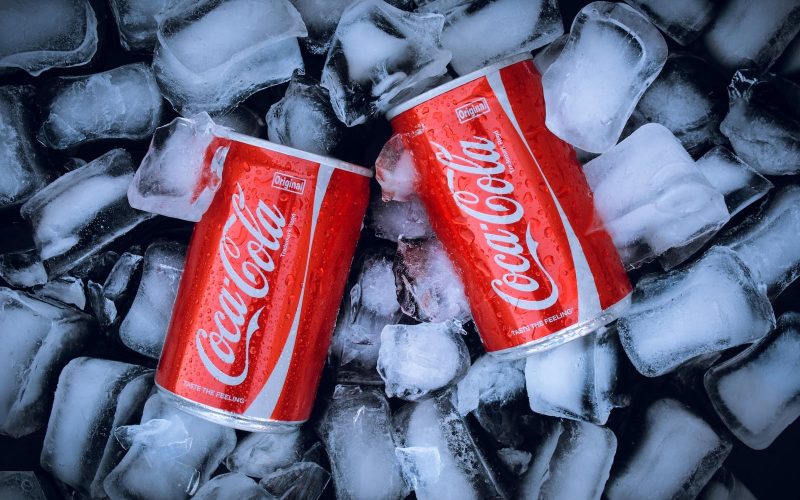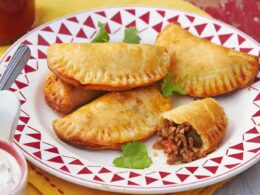Being conscious of your calorie intake is a key aspect of maintaining a balanced diet.
Whether you’re aiming to lose weight, gain weight, or stay healthy, understanding your calorie intake can be a helpful tool.
Understanding the Importance of Calorie Counting
Calorie counting involves tracking the number of calories you consume in a day.
This practice is important because it allows you to balance the energy you put into your body with the energy you expend during daily activities and exercise.
It’s a method used by many to ensure they’re eating the right amount for their specific health goals.
Knowing how many calories are in the food and drinks you consume can also help you make healthier choices.
For example, if you’re considering a snack, you might opt for a piece of fruit over a candy bar once you realize the calorie difference.
For more on this topic, check out our article on what is calorie counting.
How Beverages Affect Your Calorie Intake
While it’s relatively straightforward to consider the calories in solid food, it’s easy to overlook the fact that beverages can also contribute significantly to your daily calorie intake.
In fact, some popular drinks can contain as many calories as a small meal!
Take, for instance, a can of Coke. When you’re thirsty, you might reach for a soda without considering how many calories it contains, especially if you’re only thinking about quenching your thirst.
However, knowing the answer to ‘how many calories in can of Coke’ can be an eye-opener and might make you reconsider your drink choices, especially if you’re counting calories.
In the following sections, we’ll dive into the specifics of how many calories a can of Coke contains, compare it to other common beverages, and discuss the health implications of high-calorie drinks.
So, stay tuned and keep reading to learn more about your favorite drinks.
Unpacking the Calorie Content of a Can of Coke
When it comes to calorie counting, understanding the nutritional content of what you consume is crucial.
Let’s focus on a popular beverage, Coke, and unpack its caloric content.
The Nutritional Facts Label: A Guide
The nutritional facts label on any food or beverage product is a great resource for understanding the calorie content.
This label will typically list the total calories, as well as the amount of fats, carbohydrates, sugars, and proteins.
When you’re counting calories, these labels are your best friend. They can help you keep track of your daily intake and make informed decisions about what to include in your diet.
How Many Calories are in a Can of Coke?
So, exactly how many calories are in a can of Coke? A standard 12 fl oz (355 ml) can of Coke contains around 140 calories.
Most of these calories come from sugars, which are a type of carbohydrate.
| Item | Amount |
|---|---|
| Total Calories | 140 |
| From Carbohydrates | 140 |
| From Fats | 0 |
| From Proteins | 0 |
Keep in mind that these values can vary slightly depending on the specific product version. For instance, Diet Coke and Coke Zero have fewer calories.
Knowing the caloric content of your beverages is a crucial part of managing your daily intake.
So whether it’s a can of Coke, a cup of coffee, or a glass of wine, always be sure to check the nutritional facts.
Comparing with Other Common Beverages
To understand the caloric impact of drinking Coke, it’s helpful to compare it with other popular beverages.
This can give you a better sense of how your choice of drink can affect your overall caloric intake.
Calorie Counts of Other Popular Soft Drinks
Just like Coke, other soft drinks can also contribute a significant amount of calories to your diet.
However, the exact number can vary depending on the specific drink.
Here’s a quick comparison of the calorie counts in different beverages:
| Beverage | Calories |
|---|---|
| Can of Coke | 140 |
| Can of Orange Soda | 160 |
| Can of Root Beer | 170 |
| Can of Lemon-Lime Soda | 150 |
| Can of Ginger Ale | 120 |
How Does Coke Compare?
When you compare the calorie content of Coke to other soft drinks, you can see that Coke falls within the same range.
This shows that if you’re trying to manage your calorie intake, you might want to consider reducing the number of soft drinks you consume or switching to lower-calorie options.
For instance, diet sodas or zero-calorie drinks can be a good alternative if you enjoy fizzy drinks but want to cut back on calories.
However, remember that these drinks often contain artificial sweeteners, which can have their own health implications.
For more information on the calorie content of diet sodas, check out our articles on how many calories in a can of coke zero and how many calories in diet coke.
You might also consider drinking more water, herbal tea, or other low-calorie beverages.
Not only do these drinks help keep you hydrated, but they also contribute significantly fewer calories to your diet.
When you’re counting calories, every little bit helps, so making smart beverage choices can go a long way toward reaching your goals.
Remember, the key to successful calorie counting is to be mindful of all aspects of your diet, not just the food you eat but also the drinks you consume.
By keeping an eye on your beverage-related calories, you can better manage your overall calorie intake and make more informed dietary decisions.
The Impact of Sugary Beverages on Health
When it comes to your health, it’s vital to not only consider the calories in your food but also the ones in your beverages.
Drinks such as a can of Coke can significantly impact your daily caloric intake, and it’s important to understand what these calories mean for your health.
Understanding the Role of Sugars in Caloric Intake
When you’re thinking about how many calories are in a can of Coke, you’re mostly looking at sugars.
Sugars, particularly those added to food and drinks, are a major source of calories.
However, these calories, often referred to as ’empty calories,’ provide energy but offer little to no nutritional value.
A typical can of coke contains about 39 grams of sugar, equivalent to about 9 teaspoons.
This significantly contributes to your daily caloric intake, especially if you consume more than one can per day.
To put this into perspective, let’s compare this to other foods.
For instance, you can check out our articles on how many calories in fried chicken or how many calories in a slice of pizza.
When you compare these numbers, you’ll see that a can of Coke can contain a similar number of calories to a small meal or snack but without the same level of satiety or nutrition.
Potential Health Risks of High-Calorie Beverages
Consuming high-calorie beverages like Coke can lead to various health issues over time.
The high sugar content not only contributes to weight gain but can also increase the risk of developing conditions such as type 2 diabetes, heart disease, and tooth decay.
In addition to the direct impact on your health, sugary beverages can also influence your eating habits.
They can increase your cravings for other high-sugar, high-calorie foods and lead to an overall unhealthy diet.
More importantly, these beverages can also displace healthier options from your diet.
For instance, if you’re drinking a can of Coke, you might be less likely to drink water, unsweetened tea, or other lower-calorie beverages.
Remember, understanding the calorie content of what you drink is just as important as knowing what you’re eating.
By being mindful of your beverage choices, you can make a significant impact on your overall health and well-being.
For more information on calorie counting and how to make healthier choices, check out our article on what is calorie counting.
Tips for Managing Beverage-Related Calorie Intake
Beverages can often be a hidden source of calories in your diet.
However, with a few smart strategies and knowing what to look for, you can manage your beverage-related calorie intake effectively.
Let’s explore some of the ways you can do that.
Choosing Lower-Calorie Beverage Options
One easy method to keep your calorie count in check is by opting for lower-calorie beverages.
Water is always an excellent choice as it contains zero calories.
If you find plain water a bit boring, try adding a slice of lemon, cucumber, or a handful of fresh mint for a refreshing twist.
Unsweetened tea and black coffee are also good low-calorie options, with only 2 calories per cup for black coffee.
For more information, check out our article on how many calories in black coffee.
If you’re a soda lover, consider switching to diet soda alternatives, which typically contain fewer or no calories.
For instance, see our article on how many calories in diet coke and how many calories in can of coke zero.
Strategies for Reducing Soda Consumption
If you’re trying to reduce the amount of soda you drink, it can be helpful to have a plan.
Here are a few strategies that might help:
- Gradual Reduction: If you’re used to drinking several cans of soda per day, try cutting back by one can per week until you’ve reached your goal.
- Find Alternatives: Find other beverages that you enjoy that are lower in calories. This could be flavored water, herbal tea, or even a soda substitute like sparkling water.
- Size Matters: If you can’t resist a fizzy drink, consider choosing a smaller serving size. This can help to reduce your calorie intake while still satisfying your craving.
- Hydrate: Sometimes, our bodies can mistake thirst for hunger. Make sure you’re drinking plenty of water throughout the day to stay hydrated.
- Mindful Drinking: Pay attention to what you’re drinking throughout the day. It’s easy to overlook the calories in beverages, so making a conscious effort to track these can be very helpful.
Remember, every person is unique, so what works for someone else might not work for you.
It’s important to find strategies that fit comfortably into your lifestyle.
And don’t forget, it’s not about perfection, but progress. Every small change you make can add up to big results over time.








